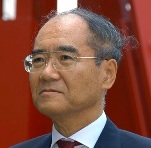Global Coordination Mechanisms

- © UN
UNESCO strives to advance the contributions to development of Education, the Sciences, Culture and Communication and Information, as necessary to meet the increasingly complex challenges of the world today.
As the UN system is called to increasingly work together for enhanced coherence, UNESCO is an active participant in the work of the UN’s Global Coordination Mechanisms, the Chief Executives Board for Coordination (CEB) and its pillars, and contributes to their deliverables .
UNESCO’s Director-General is a member of the Chief Executives Board (CEB) for Coordination. Chaired by the UN Secretary General Ban Ki-moon, the CEB brings together on a regular basis the executive heads of the UN organizations. Its mandate is to foster UN-system wide coordination and cooperation on a range of contemporary programmatic and management issues facing UN system organizations.
CEB is supported by three high-level committees:
- High-level Committee on Programmes (HLCP)
responsible for substantive programme issues - High-Level Committee on Management (HLCM)
responsible for relevant management issues of the UN system - United Nations Development Group (UNDG)

Consolidated comments on the “Delivering as One” Report of the High-Level Panel on UN System-wide Coherence in the Areas of Development, Humanitarian Assistance and the Environment
More

Summary of Conclusions from 36 of Meeting of UNDG
More

Kemal Dervis letter 9 November 2006
More

Secretary General letter to UNESCO Director General 22 November 2006
More

Review of CEB preliminary proposals for action
More

Briefing note for UNDG 15 of April 2007
More

UNDG Principles on PCNA
More

Note to the Deputy Secretary-General
More

UNDP Draft strategic plan 2008-2011
More

Report of the Secretary-General 3 April 2007
More

PCNA Review Report 15 January 2007
More
To respond to the TCPR and global development priorities, and to ensure the UN development system becomes more internally focused and coherent, the UNDG has developed and endorsed a set of strategic priorities for 2010-2011. The UNDG strategic priorities give direction to UNDG efforts at the global, regional and country level to facilitate a step change in the quality and impact of UN support at the country level.
The Management and Accountability System of the UN Development and Resident Coordinator System including the “functional firewall” for the RC System.
Key priorities from UNDG Strategy to be implemented through Work Plan.

